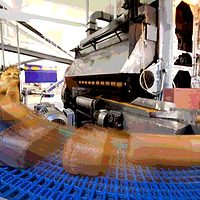Integrating Safety into Quality Management Systems: Who should Drive the Bus?
By definition, a quality management system (QMS) is a set of standards, procedures and work practices designed to react quickly to quality problems, systematically meet changing customer requirements and make continuous improvements. They are put in place to achieve a systematic effort to create sustainable quality control and improvement,[1] and, when designed and implemented well, can be a major contributor to the overall profitability of an organization. However, it is often the case that organizations within the food industry dedicate the bulk of their financial and human resources toward food safety compliance, while leaving little left to improve other important aspects of quality such as waste elimination, improvement of product attributes and customer value; unfortunately, auditing bodies, more than the voice of the customer, sometimes drive the direction of quality. However, with the new millennium at hand, a shift in paradigms may be in order. With the emergence of the Global Food Safety Initiative benchmarks, everyone within the food industry will be held to the same auditing standards. Thus, it is time to approach food quality as a way to differentiate products, with food safety coming ‘along for the ride.’
A QMS, which is driven by a corporate strategy, is comprised of several components of quality control beyond the operational level. A QMS can include such things as the policies, procedures, controls and standards that are in place to reduce risk of failure or defect. While current safety systems often drive organizations toward an “acceptable’ safety risk, quality improvement has a goal far beyond; the purpose of a QMS is to satisfy and continuously improve toward product and service excellence. Within the food industry, many organizations are just beginning to look beyond traditional inspection as the driver of quality control. Meanwhile, all of the controls of a QMS are driven by both the customer value proposition and the voice of customer, coupled with manufacturability and design pressures.[2] The food industry’s unique position forces their quality systems to address public health issues ahead of more strategically based quality outcomes. However, as one considers the purpose and abilities of a well-designed and implemented QMS, it becomes evident that a robust QMS will reduce the risk involved in food safety and improve food safety outcomes, while simultaneously making improvements in other important areas.
As a result, we suggest that food manufacturers consider a change of direction, from food safety management to overall quality management in order to take a more holistic and strategic approach to improvement, which includes food safety but within a larger quality management system framework. So, why the change? We contend that while food safety standards are incredibly important to the industry and to individual manufacturers, a shift to a more holistic QMS will allow for more formalized approach to responding to current and future customer demands. This, in turn, will allow food suppliers to use quality as a driver of organization strategy—creating quality products that are both safe and provide customer value. We contend that the development and implementation of an effective QMS will help to improve overall profitability through improved quality and reduced quality costs. In the same way that Toyota is able to make safe cars that people want to buy and drive, within the food industry, we need to consider building quality systems that not only keep customers safe, but also work toward the development of products that have a transcendent quality that makes them inherently desirable to our customers. This inherent desirability is the ultimate goal of a good quality management system. Thus, as an industry, we might consider changing the driving force of our quality programs from a narrow focus on safety to overall product and process quality. With a strong QMS in place to drive the bus, safety will also improve.
Steven Atkins, MBA, works in both quality assurance and quality control with a major U.S. food manufacturer. He received his MBA from Metropolitan State University in Minneapolis, Minnesota.
Marcia Hagen, Ph.D., is an Assistant Professor at Metropolitan State University. Her research intereste include organizational behavior and quality management. She can be reached at marcia.hagen@metrostate.edu
References
1. Evans, J.E. and W.M. Lindsay. 2008. Managing for quality and performance excellence. Mason, OH: Thomson South-Western.
2. Aikens, H.C. 2011. Quality inspired management: The key to sustainability. Boston, MA: Prentice-Hall.
Looking for a reprint of this article?
From high-res PDFs to custom plaques, order your copy today!





